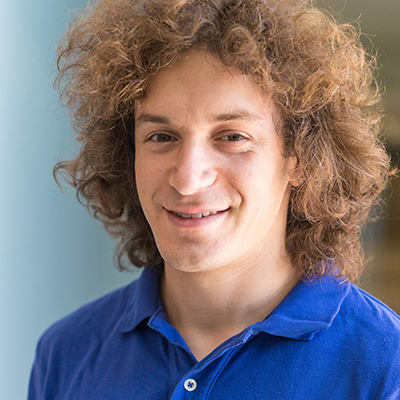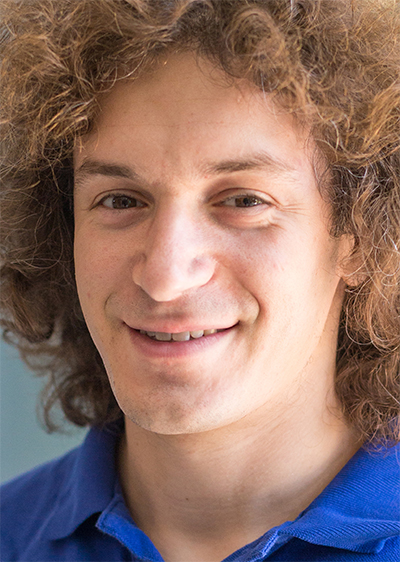
Professor Daniel M. Kane has dual appointments in the Computer Science and Engineering (CSE) and Mathematics departments, and he is one of a select few UC San Diego faculty to be honored by the Alfred P. Sloan Foundation. To further his research on two main topics – the analysis of low-degree polynomials, and distribution learning – Kane will receive $60,000 in the form of a 2017 Sloan Research Fellowship.

Kane has broad interests in mathematics (notably number theory and combinatorics) and theoretical computer science (including derandomization or Boolean functions. “My research in computer science has leveraged my background in mathematics and problem solving,” he noted in his research statement for the Sloan Foundation.
The foundation is selective in choosing young professors whose achievements mark them as the nation’s future leaders in science and technology. For 2017, Kane is one of six early-career faculty members from UC San Diego to win the prestigious fellowship. He is also one of only two Jacobs School of Engineering faculty among this year’s winners; the other is Electrical and Computer Engineering professor Siavash Mirarab. The other honorees are in the physical or biological sciences (see campus announcement).
“The large number of Sloan Research Fellowships awarded this year to our faculty is a powerful confirmation of the quality of our university, scholars and research enterprise,” said UC San Diego Chancellor Pradeep K. Khosla. “I congratulate these young scholars on their achievements and I look forward to seeing them pave the way for our next generation of leaders.”
To date, Kane has pursued a wide range of research topics in computational geometry, steaming algorithms, dimensionality reduction, cryptography, quantum computing, data structures and pseudorandomness.
Going forward, he aims to go beyond his prior work on polynomial threshold functions and distribution learning. “Polynomials are a fundamental tool in theoretical computer science because they are both flexible enough to approximate many objects of interest and simple enough that they are amenable to analysis,” noted Kane in his research statement for the Sloan Foundation. Building on his prior work with polynomials, Kane is hoping “to improve the parameters of some of the existing decomposition results to produce better pseudorandom generators.” He will also tackle other problems applied to quantum computation (the Aaronson-Ambainis conjecture) and learning theory (the Chow parameters problem).
Distribution learning
Kane will also use his Sloan funds to delve further into classic questions in statistics that have recently drawn the attention of the computer-science theory community – in many cases, he says, motivated by an effort to improve machine-learning algorithms. “I hope to improve upon my recent work on robust learning of high-dimensional distributions,” said Kane. “These may include expanding the collection of families that it can deal with, while decreasing the sample complexity and final error.” He also has projects in the works involving learning and testing problems related to binary product distributions and Beyesian nets.
Kane is teaching this quarter at UC Berkeley as part of the pseudorandomness program at the Simons Institute for the Theory of Computing, as well as the analytic number theory workshop throughout February organized by the Mathematical Sciences Research Institute. This spring Kane will be back in San Diego teaching undergraduates an Introduction to Algorithms (CSE 101) as well as a graduate course on Statistical Learning Theory (CSE 291).
A total of 126 researchers from 60 colleges and universities received Sloan Research Fellowships this year. “The Sloan Research Fellows are the rising stars of the academic community,” said Paul L. Joskow, president of the Sloan Foundation. “Through their achievements and ambition, these young scholars are transforming their fields and opening up entirely new research horizons. We are proud to support them at this crucial stage of their careers.”
Related Links

